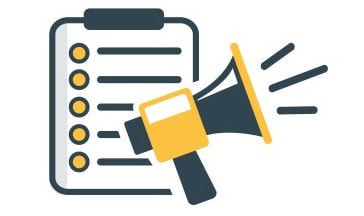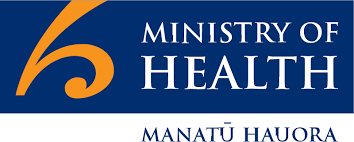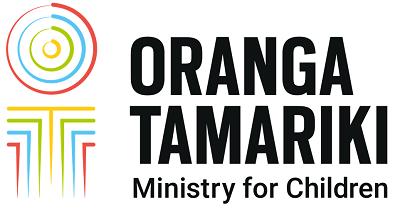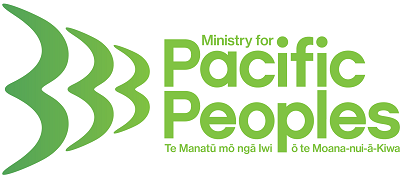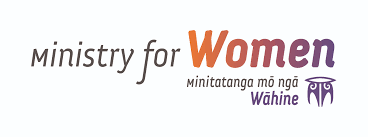Government Departments Helping New Zealanders Directly
Our guide outlines what selected New Zealand government departments offer, and the services help and improve the lives of everyday New Zealanders
Updated 10 May 2023
Know This First: MoneyHub relies on the hardworking and largely unrecognised teams that staff a number of government departments. We frequently consult with a range of individuals when our guides cover their expertise. This guide helps to outline what some key departments can offer New Zealanders looking for assistance and support.
Our guide
We've put together this guide to summarise the services provided by selected government departments. This is not an exhaustive list - instead, we've presented a roundup of some high profile, public-facing government departments that enrich the lives of everyday New Zealanders. Our list includes:
Our guide
We've put together this guide to summarise the services provided by selected government departments. This is not an exhaustive list - instead, we've presented a roundup of some high profile, public-facing government departments that enrich the lives of everyday New Zealanders. Our list includes:
- Ministry of Business, Innovation, and Employment
- Ministry of Education
- Ministry of Health
- Ministry of Housing and Urban Development
- Inland Revenue
- Te Puni Kōkiri - Ministry of Māori Development
- Oranga Tamariki - Ministry for Children
- Ministry for Pacific Peoples
- Ministry of Social Development
- Ministry of Transport
- Ministry for Women
Ministry of Business, Innovation, and Employment
The Ministry of Business, Innovation and Employment is more commonly known as MBIE (pronounced "Em-Bee"). MBIE is a large agency with a broad focus on the interaction between Government and Business. Most recently, MBIE took over running the Managed Isolation and Quarantine (MIQ) process for people who returned to NZ during Covid-19.
MBIE divides their key work areas as follows:
1. Building and energy
MBIE's role in building and energy includes responsibility for housing and Tenancy Services, building and construction permits (including the Weathertight Homes Resolution service) and governance around NZ's energy resources.
2. Business and Employment
The business and employment functions of MBIE encompass consumer protection and consumer rights, training needs and labour marketing reporting, Health and Safety - including WorkSafe, Employment Relations and Economic development
3. Immigration and Tourism
The immigration and tourism function primarily includes the Immigration Service - covering both temporary and permanent immigration to New Zealand
The tourism function includes funding and strategy research and projects to support tourism in New Zealand
4. Other Cross-Government Functions
MBIE manages the Government's dispute resolution service (not to be confused with the Employment Relations Authority - although it runs that, too) and supports all-of-Government procurement helping Government agencies buy in bulk to get better value for money.
5. Science and Technology
The science and technology function helps support the development of science and technology in New Zealand. This includes innovation research and funding, the New Zealand Space Agency(!) and supporting IT, Communications and Broadband rollout.
MBIE divides their key work areas as follows:
1. Building and energy
MBIE's role in building and energy includes responsibility for housing and Tenancy Services, building and construction permits (including the Weathertight Homes Resolution service) and governance around NZ's energy resources.
2. Business and Employment
The business and employment functions of MBIE encompass consumer protection and consumer rights, training needs and labour marketing reporting, Health and Safety - including WorkSafe, Employment Relations and Economic development
3. Immigration and Tourism
The immigration and tourism function primarily includes the Immigration Service - covering both temporary and permanent immigration to New Zealand
The tourism function includes funding and strategy research and projects to support tourism in New Zealand
4. Other Cross-Government Functions
MBIE manages the Government's dispute resolution service (not to be confused with the Employment Relations Authority - although it runs that, too) and supports all-of-Government procurement helping Government agencies buy in bulk to get better value for money.
5. Science and Technology
The science and technology function helps support the development of science and technology in New Zealand. This includes innovation research and funding, the New Zealand Space Agency(!) and supporting IT, Communications and Broadband rollout.
Ministry of Education
The Ministry of Education is the Government's lead advisor on anything relating to Education in New Zealand, encompassing early learning, Primary and Secondary School and Tertiary study.
Broadly they divide their work as follows:
The Ministry of Education also monitors and oversees Education New Zealand, New Zealand Qualifications Authority and the Tertiary Education Commission. The Ministry of Education break some of the available services by the age group to provide further details as to what's available at each level
Broadly they divide their work as follows:
- Support and resources for the community - programmes and services focused on improving the community's knowledge of and participation in the education system
- Support and resources for education providers - ensuring education providers have the resources and support they need to deliver services to students
- School property portfolio management - responsibility for all education property owned by the Government including upgrades and improvements and constructing new facilities
- Support and resources for teachers - teachers' and principals' professional development, curriculum statements and achievement standards and resources to support teaching. The Ministry also administers teachers' payroll
- Interventions for target student groups - policies, resources and services focused on targeted students groups' or individuals' participation in education. This includes specialist support services, funding and other resources, and special education services.
The Ministry of Education also monitors and oversees Education New Zealand, New Zealand Qualifications Authority and the Tertiary Education Commission. The Ministry of Education break some of the available services by the age group to provide further details as to what's available at each level
- Early Childhood
- School (Primary, Intermediate and Secondary)
- Further Education
Ministry of Health
The Ministry of Health plans and delivers New Zealand's health and disability system. The Ministry provides policy, leadership and regulation, and funding and support for local District Health Boards and other services.
The Ministry of Health funds the country's twenty district Health Boards to deliver services to local communities. They also negotiate agreements with services like pharmacies, laboratories and radiology clinics, private health care providers and NGOs. The full picture of how New Zealand's health system works is available here.
There is a vast amount of information about Health initiatives on the Ministry of Health's website - useful links include:
The Ministry of Health funds the country's twenty district Health Boards to deliver services to local communities. They also negotiate agreements with services like pharmacies, laboratories and radiology clinics, private health care providers and NGOs. The full picture of how New Zealand's health system works is available here.
There is a vast amount of information about Health initiatives on the Ministry of Health's website - useful links include:
- Guide to eligibility for funded services
- Information and advice about key Health Topics
- Ministry publications including planning, reports, research and advice
- Information about your specific District Health Board who are responsible for services in your area
Ministry of Housing and Urban Development
The Ministry of Housing and Urban Development was formed in 2018 to bring together housing functions from various other agencies into one place. Their key areas of focus are to:
The department works alongside Kāinga Ora, the Government's primary housing and urban development delivery arm focused on providing public housing principally for those most in need and initiating or undertaking urban development.
As with many Government departments, the Ministry doesn't provide housing directly and is more focused on policy and advice. If you require support for homelessness and/or housing, Work and Income provides this.
- Address homelessness
- Increase public and private housing supply
- Modernise rental laws and rental standards
- Increase access to affordable housing, for people to rent and buy
- Support quality urban development and thriving communities.
The department works alongside Kāinga Ora, the Government's primary housing and urban development delivery arm focused on providing public housing principally for those most in need and initiating or undertaking urban development.
As with many Government departments, the Ministry doesn't provide housing directly and is more focused on policy and advice. If you require support for homelessness and/or housing, Work and Income provides this.
Inland Revenue
Inland Revenue is best known as the country's tax collector, responsible for collecting about 80% of the Government's revenue. Some of their keys roles include:
Inland Revenue also implement Working for Families Tax Credits as these are based on taxable income. Payments can be made based on annualised income, or as income changes (as reported by your employment).
In the past, Inland Revenue had a reputation for being hard to understand, but they've been undertaking a review of their processes - including their online services - to try and make things simpler and easier. If you have a complex issue they may also have staff in the community able to meet with you face-to-face to assist. Speak to their contact centre, or your local community agencies such as Work and Income or the Citizens Advice Bureau to find out more.
Inland Revenue's website has lots of great information about what they do and how things work. Find out more here.
- Managing the IRD Number registration process
- Processing tax returns, payments and refunds
- Collecting KiwiSaver contributions and passing on to KiwiSaver providers
- Collecting and processing GST payments and returns
- Managing the Student Loan repayment process for non-current students
- Collecting payroll information from employers
- Assessing and collecting child support payments for liable parents.
Inland Revenue also implement Working for Families Tax Credits as these are based on taxable income. Payments can be made based on annualised income, or as income changes (as reported by your employment).
In the past, Inland Revenue had a reputation for being hard to understand, but they've been undertaking a review of their processes - including their online services - to try and make things simpler and easier. If you have a complex issue they may also have staff in the community able to meet with you face-to-face to assist. Speak to their contact centre, or your local community agencies such as Work and Income or the Citizens Advice Bureau to find out more.
Inland Revenue's website has lots of great information about what they do and how things work. Find out more here.
Te Puni Kōkiri / Ministry of Māori Development
Te Puni Kōkiri is the lead Government agency providing public policy advice on behalf of Māori. They provide advice on Government-Māori relationships, guidance to the Government about policies affecting Māori wellbeing and administer and monitor legislation. They administer several programmes ranging from housing initiatives to digital connectivity for Marae.
Probably the most well-known service administered by Te Puni Kōkiri is Whānau Ora. This service seeks to increase the wellbeing of individuals and their whānau by identifying and implementing support services.
You can find a full list of Te Puni Kōkiri's services and initiatives here.
Probably the most well-known service administered by Te Puni Kōkiri is Whānau Ora. This service seeks to increase the wellbeing of individuals and their whānau by identifying and implementing support services.
You can find a full list of Te Puni Kōkiri's services and initiatives here.
Oranga Tamariki — Ministry for Children
The Ministry for Children, Oranga Tamariki, is the government agency responsible for making sure children and young people up to the age of 18 years are safe and protected from abuse and neglect.
Most people will be familiar with Oranga Tamariki as the agency that deals with complaints or concerns about child abuse or neglect, but they are also involved in youth justice situations (e.g. when a child or young person breaks the law) and support for caregivers and adoptions.
Oranga Tamariki makes an effort to work alongside families (including the wider whānau) to ensure the best outcome for children. As a last resort, they do have the power to remove children from their home to a place where they will be safe and properly cared for but they strive to find a family-based solution first.
You can find out more about their work — including reporting concerns you may have for a child or family here.
Most people will be familiar with Oranga Tamariki as the agency that deals with complaints or concerns about child abuse or neglect, but they are also involved in youth justice situations (e.g. when a child or young person breaks the law) and support for caregivers and adoptions.
Oranga Tamariki makes an effort to work alongside families (including the wider whānau) to ensure the best outcome for children. As a last resort, they do have the power to remove children from their home to a place where they will be safe and properly cared for but they strive to find a family-based solution first.
You can find out more about their work — including reporting concerns you may have for a child or family here.
Ministry for Pacific Peoples
The Ministry for Pacific Peoples advises the Government on developing policies and interventions that improve outcomes for Pacific Peoples.
Alongside their policy advice function, some of their key public-facing initiatives include supporting Pacific Language weeks which are held throughout the year.
The Ministry maintains a database of skilled Pacific people who are available to appointments to Governance boards. The Ministry also run the Prime Minister's Pacific Youth Awards, an initiative to recognise and celebrate high-achieving young Pacific New Zealanders.
Alongside their policy advice function, some of their key public-facing initiatives include supporting Pacific Language weeks which are held throughout the year.
The Ministry maintains a database of skilled Pacific people who are available to appointments to Governance boards. The Ministry also run the Prime Minister's Pacific Youth Awards, an initiative to recognise and celebrate high-achieving young Pacific New Zealanders.
Ministry of Social Development
The Ministry of Social Development plays an important role of in the financial security of New Zealanders - in their owns words they help New Zealanders to be safe, strong and independent.
The Ministry's key initiatives include:
They also take the lead in emergency situations and specific projects - e.g. administering the Covid-19 Wage Subsidy or facilitating the "It's Not Ok" family violence campaign.
Most people, however, will be familiar with Work and Income and Studylink as the main ways of interacting with the Ministry of Social Development.
The Ministry's key initiatives include:
- Providing employment and financial support through Work and Income and Senior Services
- Funding community services providers
- Administering the student loan and allowance programme through Studylink.
They also take the lead in emergency situations and specific projects - e.g. administering the Covid-19 Wage Subsidy or facilitating the "It's Not Ok" family violence campaign.
Most people, however, will be familiar with Work and Income and Studylink as the main ways of interacting with the Ministry of Social Development.
Ministry of Transport
The Ministry of Transport is the Government's principal transport adviser. The majority of their work is in providing policy advice and support to Ministers, and consulting with relevant industries and the public. They are involved in everything from road travel to air and sea transport and freight and logistics.
The Ministry also has some responsibility for some operational functions, including:
You can find out more about the Ministry of Transport — including what they are currently seeking feedback here.
Know This: The Ministry of Transport is often confused with the New Zealand Transport Agency - known as Waka Kotahi.
Waka Kotahi is part of the Ministry of Transport and responsible for a range of public-facing transport-related services such as vehicle licensing and registration and driver's licenses. They also monitor and maintain state highway conditions and operate a nation-wide journey planner.
The Ministry also has some responsibility for some operational functions, including:
- Collecting and refunding road user charges and fuel excise duty
- Licensing foreign international airlines flying to and from New Zealand
- Operating Milford Sound/Piopiotahi Aerodrome
- Overseeing the Government's interest in joint venture airports
- Administering a contract with the Meteorological Service of New Zealand to provide public weather warnings and forecasts.
You can find out more about the Ministry of Transport — including what they are currently seeking feedback here.
Know This: The Ministry of Transport is often confused with the New Zealand Transport Agency - known as Waka Kotahi.
Waka Kotahi is part of the Ministry of Transport and responsible for a range of public-facing transport-related services such as vehicle licensing and registration and driver's licenses. They also monitor and maintain state highway conditions and operate a nation-wide journey planner.
Ministry for Women
The Ministry for Women provides advice on policy solutions to provide better results for women. For example, the gender analysis tool was designed to help policymakers explore how gender impacts their policy decisions.
The Ministry manages New Zealand's international obligations in relation to the status of women, in particular under the United Nations Convention for the Elimination of All Forms of Discrimination against Women.
The Nominations Service supports women into governance positions within the state sector by providing the names of suitable candidates for board positions to Government agencies which appoint to state sector boards. The Ministry also produces and publishes research to support issues such as the gender pay gap and representation in leadership roles.
The Ministry manages New Zealand's international obligations in relation to the status of women, in particular under the United Nations Convention for the Elimination of All Forms of Discrimination against Women.
The Nominations Service supports women into governance positions within the state sector by providing the names of suitable candidates for board positions to Government agencies which appoint to state sector boards. The Ministry also produces and publishes research to support issues such as the gender pay gap and representation in leadership roles.

